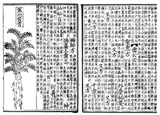 Traditional Chinese Medicine (TCM) plays a key role in China’s response to the healthcare needs and expectations of its population. In 2009 China’s State Council issued a guideline on TCM development. The guideline stresses an equal weight given to TCM and Western medicine; coordination of service delivery, health maintenance, research, education, impact of industry and culture; government support and mobilization of social resources to promote the development of TCM. The strategy emphasizes the TCM development plan and coordination mechanisms which imply increased financial and policy support from government. The provision of TCM services will be enhanced by reforms of the insurance policy, regulatory measures and improved intellectual property protection.
Traditional Chinese Medicine (TCM) plays a key role in China’s response to the healthcare needs and expectations of its population. In 2009 China’s State Council issued a guideline on TCM development. The guideline stresses an equal weight given to TCM and Western medicine; coordination of service delivery, health maintenance, research, education, impact of industry and culture; government support and mobilization of social resources to promote the development of TCM. The strategy emphasizes the TCM development plan and coordination mechanisms which imply increased financial and policy support from government. The provision of TCM services will be enhanced by reforms of the insurance policy, regulatory measures and improved intellectual property protection.
The integration of TCM services is to be guided by “four combinations”:
1. improving TCM knowledge and skills as well as improving herbal medicines;
2. improving the quality of human resource and access to service facilities;
3. generalizing standardized high-level accreditation and making allowance for special local situations and constraints;
4. ensuring a balance between the heritage of tradition and the contribution of innovation.
There is an attempt to preserve the value added by TCM while actively utilizing modern science and technology to improve TCM. This is not done only with regard to the domestic healthcare market. While TCM has a prominent role within China (for example, the sale of Chinese Material Medica in 2009 accounted for 30% of domestic medicine market), its use in the rest of the world is rapidly expanding.
Traditional Chinese Medicine in China is far from a marginal activity referring to the past. Rather, it is a major component of China’s healthcare system in terms of supply and uptake of services, in terms of expenditure, and in terms of meeting the expectations of the population. The degree of integration of TCM in the overall national healthcare delivery system perhaps makes it easier to quantify its importance within healthcare delivery system than in countries which arrangements are less formal. The globalization of the various conceptions of medicine – conventional, traditional, complementary, alternative – adds urgency to the documentation of their importance in the system.
The post Prospects of Traditional Chinese Medicine in China appeared first on Dr Natural Healing.

